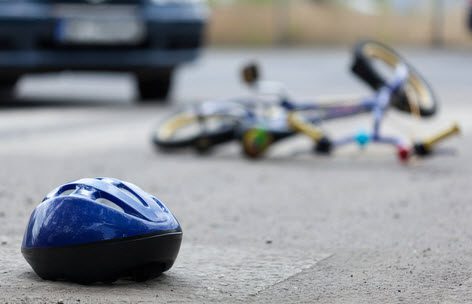A leading bicycle safety advocate says he is leaving the state after he was rear-ended by a fatigued driver who did not even receive a citation.
Alan Snel made the remarks in some of his first public comments since a March car accident near Fort Pierce on Old Dixie Highway. According to witnesses and police, a 65-year-old who said he “suffered from extreme sleep apnea” essentially drove his vehicle into the back of Mr. Snel’s bicycle. Although deputies attributed the crash to “fatigue/asleep” and “driver inattention,” the motorist did not receive a citation. “Florida is a no-fault state” and “there’s no evidence that indicates he purposely set out that day to go and run over a bicyclist,” explained Deputy Bryan Beaty. After he recovers from his injuries, Mr. Snel says he will move back to Nevada, where lawmakers are debating a provision that would increase the penalties for negligent drivers in bicycle-auto crashes.
Florida is the most bicycle-unfriendly state in the country, with a cyclist death rate three times above the national average.
Bicycle-Vehicle Collisions
In terms of its transportation network, Florida is a typical Sunbelt state. Most streets are wide and straight with long greenlights, to accommodate as much vehicle traffic as possible and move cars as quickly as possible. Transportation planner Stephen Benson remarked that the state is looking for opportunities to add protected bicycle lanes, but he admitted that retrofitting streets to accommodate cyclists and pedestrians is “a huge undertaking.”
The truth is that many politicians hesitate to improve bicycle safety because they fear bikelash from motorists. Many motorists oppose designated bike lanes, traffic calming measures, and other changes because they say that these measures are too costly. But in reality, according to some observers, the issue is more territorial, because some motorists do not want the traffic delays which they fear would accompany bicycle-friendly accommodations.
Safety changes will probably come slowly to the Sunshine State, if at all. So, it is up to personal injury attorneys to protect bikers in negligence court, by holding tortfeasors (negligent drivers) accountable for the wrecks and injuries they cause when law enforcement is unable to do so.
Injuries in Bicycle-Vehicle Collisions
Since bicycle riders have no restraint systems or steel cocoons to protect them in collisions, they are vulnerable to serious injuries, including:
- Head Injuries: Riders are nearly always thrown off their bikes in these collisions, and the sudden jarring motion alone is usually enough to cause a brain injury. If the victim’s head strikes the ground or pavement, which it often does, the injury could be even worse.
- Broken Bones: When riders land after flying through the air, their broken bones normally require metal screws or ins during corrective surgery, and after that, they face months of expensive and painful physical rehabilitation.
- Severe Bleeding: After even a rather nominal blood loss, some body organs begin shutting down, and they often never restart.
In serious injury cases like these, victims are entitled to compensation for both their economic losses, such as medical bills, and their noneconomic losses, such as pain and suffering. Punitive damages are available as well, in some cases.
Count On Experienced Attorneys
Bicycle-vehicle collisions are among the most serious types of roadway negligence cases. For a free consultation with an experienced personal injury lawyer in Brandon, contact Reed & Reed. Home and hospital visits are available.
From our office in Brandon, Reed & Reed helps clients in Tampa, New Tampa, Plant City, East Hillsborough County and throughout the state of Florida.
Resources:
tampabay.com/features/humaninterest/no-penalty-for-driver-who-hit-bicycle-advocate-alan-snel-infuriating/2318743
aafp.org/afp/2001/0515/p2007.html




